Every year in September, the Church of the Nazarene observes Freedom Sunday, a time set aside to raise awareness of the issue of human trafficking, pray for those caught in slavery, and support church-led anti-human trafficking efforts.
Around the world, Nazarene churches are showing real, active love to those who are vulnerable to exploitation and trafficking. Nazarene Compassionate Ministries partners with those churches in anti-human trafficking efforts that range from prevention and education to protection and rehabilitation.
As Freedom Sunday approaches, you may be looking for practical ways you or your church can stand in solidarity with those impacted by human trafficking. Keep reading for suggestions to help you stand for freedom.
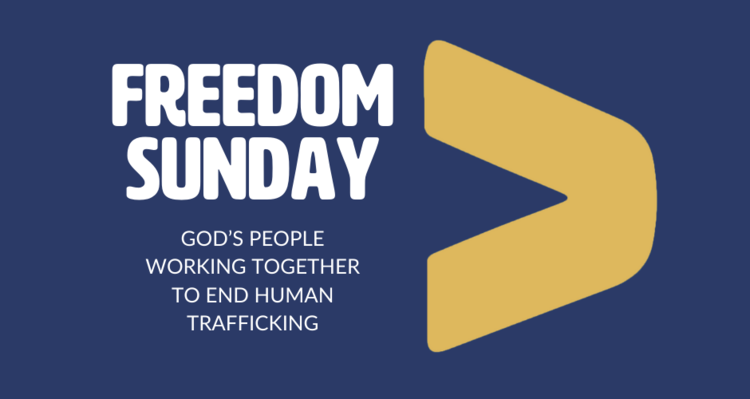
1. Pray.
Human trafficking is an evil that we can never fight on our own; we will need God’s presence, peace, and purpose. Ultimately, human trafficking is just a symptom of the bigger issue of broken relationships—with God, others, self, and systems. Survivors need our prayers, and we need the Spirit’s guidance as we stand against trafficking.
Find downloadable prayers here and here.
2. Learn about the issue.
Faith Alliance Against Slavery and Trafficking (FAAST) offers free toolkits and curriculum for churches, communities, and schools. There are two helpful Bible studies: one that focuses on the issue of exploitation in the Bible and one that focuses on the issue of human trafficking from a biblical perspective.
Nazarene Compassionate Ministries’ anti-human trafficking educational resources can be found here.
In the United States, the State Department’s website provides U.S.-specific information.
3. Support global holistic child development and economic development programs.
Internationally, the church’s strongest engagement with the problem of human trafficking is through prevention, including education aimed at at-risk children and youth through child development centers and providing economic and educational opportunities to lower the risk of poverty-induced trafficking.
Child development centers help children succeed in school and learn they are precious as children of God, which in turn helps them see their own value.
Women’s economic self-help groups and skills training programs empower members to improve their household finances, which lessens their children's risk of being trafficked.
Programs that focus on orphaned children bring children into families and keep them off the streets where they are vulnerable to abuse and “too good to be true” offers of employment elsewhere.
When you donate to holistic child development programs or sponsor a child, or when you give to support economic development programs, you’re helping vulnerable children and adults have choices and options outside of those offered by those who would abuse or use them.
4. Partner with anti-human trafficking agencies.
The best way to engage in anti-trafficking efforts is to learn from and partner with others. Learn from those who have experience and expertise. Partner with like-minded organizations.
In the United States, search this directory to find agencies near you.
When you find a local agency or safe home to support, here are a few ideas for how to get involved:
• Do a gift card drive based on the needs of a specific organization (ask ahead of time)
• Put together care packages (again, based on needs of an organization)
• Offer to sponsor an event for residents of a restoration home
• Encourage others in your church or community to donate professional services, such as medical or dental care, legal assistance, accounting, marketing, or grant writing as needed
• Homes may also need skills including transportation, tutoring, life skills, job skills, teaching Bible studies, gardening, etc. Always ask the organization what would be the most helpful.
• Encourage those in your church to offer jobs or internships to graduates of restoration homes
5. Teach children how to be safer online.
Netsmartz offers good guidelines for families, teachers, and churches.
6. Minister to children and youth in the foster care system.
Children and youth in the foster care system are targeted by traffickers because of their need for love and protection. A 2013 report by the HHS Administration on Children, Youth and Families (ACYF) cited several studies showing that 50 to more than 90 percent of children who were victims of child sex trafficking had been involved with child welfare services (HHS, ACF, 2013). Contact a foster care agency in your area and ask what your church can do to help foster youth, particularly those who are aging out of the system.
7. Support local law enforcement agencies.
Build relationships with local law enforcement to understand your local context and talk about how your church can support their efforts to fight trafficking.
8. Fight the demand.
Human trafficking is a big-money business. It ties with the global arms trade as the second-largest criminal income producer worldwide. Our culture and actions can actually drive demand for slave labor and commercial sex.
You can learn more about the connection between pornography and sex trafficking here.
Learn about the connection between consumerism and labor trafficking from the Global Slavery Index and Slavery Footprint. These sites are tools to understand the problem, responses, and contributing factors related to labor trafficking.

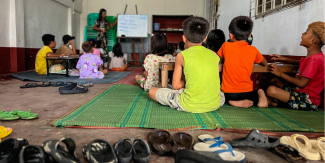
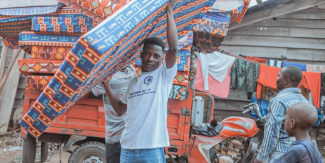
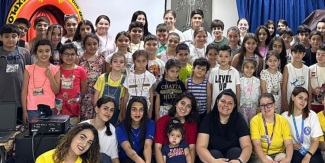

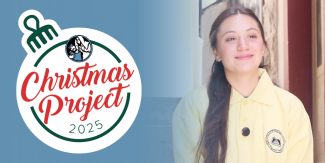
Add new comment